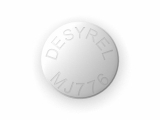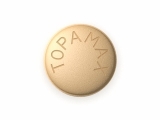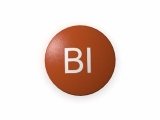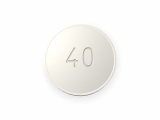Pharmacy terms to know
When it comes to managing your health and understanding medications, it's important to have a good grasp of common pharmacy terms. Whether you're picking up a prescription or speaking with your healthcare provider, having a basic understanding of these terms can help you make informed decisions about your healthcare.
Pharmacist: A pharmacist is a healthcare professional who is trained to prepare and dispense medications. They play an important role in monitoring medication use, answering questions, and providing advice about medications.
Prescription: A prescription is a written order from a healthcare provider for a specific medication. It includes important information such as the patient's name, the medication name, dosage instructions, and the healthcare provider's signature. Prescriptions are filled by a pharmacist at a pharmacy.
Generic medication: A generic medication is a medication that contains the same active ingredient as a brand-name medication. Generic medications are often less expensive than brand-name medications and are just as safe and effective.
Over-the-counter (OTC) medication: Over-the-counter medications are medications that can be purchased without a prescription. These medications are typically used to treat minor illnesses and symptoms such as headaches, coughs, and allergies. It's important to read and follow the instructions on OTC medications to ensure safe and effective use.
Drug interaction: A drug interaction occurs when a medication affects the way another medication works in the body. Some drug interactions can be harmful or decrease the effectiveness of medications. It's important to inform your healthcare provider and pharmacist about all the medications you are taking to avoid potential drug interactions.
By familiarizing yourself with these pharmacy terms, you can better navigate the healthcare system and make informed decisions about your medications. Don't be afraid to ask your pharmacist or healthcare provider if you have any questions or need clarification about any pharmacy terms.
Prescription Medications
In the field of pharmacy, prescription medications refer to drugs that can only be obtained with a prescription from a licensed medical professional, such as a doctor or a nurse practitioner. These medications are often stronger and have a higher potential for misuse or abuse than over-the-counter medications, which can be purchased without a prescription.
Prescription medications are prescribed for a variety of purposes, including:
- Treating acute or chronic illnesses
- Managing symptoms
- Preventing diseases or conditions
- Controlling pain
- Improving overall health and well-being
Prescription medications can come in different forms, such as tablets, capsules, liquids, creams, patches, or injections. The dosage and frequency of taking prescription medications are usually indicated on the prescription label or provided by the prescribing healthcare professional.
It is important to follow the instructions and precautions for taking prescription medications:
- Take the medication as directed by the healthcare professional.
- Do not exceed the recommended dosage.
- Do not take someone else's prescription medication.
- Inform your healthcare professional about any other medications or supplements you are currently taking to avoid potential drug interactions.
- Store prescription medications properly, following the instructions on the label.
In some cases, prescription medications may cause side effects or adverse reactions. If you experience any unexpected or severe symptoms while taking prescription medications, it is important to contact your healthcare professional immediately.
Prescription medications play a crucial role in modern healthcare, providing valuable treatment options for various medical conditions. However, it is essential to use them responsibly and safely under the guidance of healthcare professionals.
Over-the-Counter Drugs
Over-the-counter drugs, also known as OTC drugs, are medications that can be purchased without a prescription. These drugs are typically used to treat common ailments such as minor pain, fever, cough, cold, allergies, and indigestion. They are easily accessible as they can be found in pharmacies, supermarkets, and convenience stores. Over-the-counter drugs are regulated by the Food and Drug Administration (FDA) to ensure their safety and effectiveness.
Types of OTC Drugs:
- Pain relievers: These drugs are used to reduce or relieve pain. They include medications like acetaminophen, ibuprofen, and aspirin.
- Cough and cold medicines: These drugs help to relieve symptoms associated with cough and cold, such as congestion, runny nose, and cough. They may contain ingredients like antihistamines, decongestants, and cough suppressants.
- Antacids: These drugs help to neutralize stomach acid and provide relief from heartburn, indigestion, and upset stomach.
- Allergy medications: These drugs help to relieve symptoms of allergies, such as sneezing, itching, and watery eyes. They may include antihistamines or decongestants.
- Sleep aids: These drugs help to promote sleep and relieve occasional insomnia. They may contain ingredients like diphenhydramine or doxylamine.
Considerations:
While over-the-counter drugs can be beneficial for self-treatment of common ailments, it is important to use them responsibly. It is crucial to read and follow the instructions provided on the packaging or consult a healthcare professional if needed. It is also necessary to be aware of possible side effects and drug interactions. If symptoms persist or worsen, it is advisable to seek medical attention.
Conclusion:
Over-the-counter drugs play an important role in providing accessible and affordable healthcare options for common health issues. However, it is essential to use them responsibly and seek professional advice when necessary to ensure safe and effective treatment.
Generic Drugs
A generic drug is a medication that is identical or bioequivalent to a brand-name drug in dosage form, strength, route of administration, quality, and performance characteristics. It contains the same active ingredients as the brand-name drug and is typically sold under its chemical name rather than a brand name.
Generic drugs are often less expensive than their brand-name counterparts because they do not require the same investment in research and development. However, they must still meet the same safety and efficacy standards as brand-name drugs in order to be approved by regulatory authorities.
Benefits of Generic Drugs
There are several benefits to using generic drugs. First and foremost, they are more affordable, making them accessible to a larger population. This can be particularly important for individuals without health insurance or those who have to pay out-of-pocket for their medications. Additionally, generic drugs can help reduce healthcare costs overall, as they often lead to lower prescription drug spending.
Another benefit of generic drugs is that they are widely available. Once the patent for a brand-name drug expires, other manufacturers can produce and sell generic versions. This increases competition in the market and can drive down prices, giving consumers more options.
Quality Assurance of Generic Drugs
The quality of generic drugs is closely regulated to ensure their safety and efficacy. Regulatory authorities require generic drugs to undergo rigorous testing and evaluation to demonstrate their bioequivalence to the brand-name drug. This means that the generic drug must deliver the same amount of active ingredient into the bloodstream within a specified time frame as the brand-name drug.
Furthermore, manufacturing facilities that produce generic drugs are subject to inspections to ensure compliance with good manufacturing practices (GMP). These practices include quality control measures and standards for the production, storage, and distribution of medications.
In conclusion, generic drugs are an important component of the pharmaceutical industry. They provide affordable alternatives to brand-name drugs and help increase competition in the market. With proper regulation and quality assurance measures, generic drugs can offer safe and effective treatment options for patients.
Brand-Name Drugs
Brand-name drugs, also known as innovative or branded drugs, are medications that are marketed and sold under a specific brand name by the pharmaceutical manufacturer. These drugs are protected by patents, which give the manufacturer exclusive rights to produce and sell the medication for a certain period of time.
One advantage of brand-name drugs is that they undergo extensive clinical trials and research before they are approved for use. This ensures their safety and effectiveness for treating specific medical conditions. Brand-name drugs also come with detailed instructions for use, dosage information, and potential side effects.
Brand-name drugs are often more expensive than their generic counterparts. This is due to the research and development costs, as well as the marketing and advertising expenses associated with promoting the drug. However, some people may prefer brand-name drugs because they trust the reputation and quality of the manufacturer.
When a brand-name drug's patent expires, other pharmaceutical companies can produce and sell generic versions of the drug. These generic drugs have the same active ingredients as the brand-name drug and are typically available at a lower cost. Generic drugs must meet the same quality and safety standards as brand-name drugs, but they may have different inactive ingredients.
In summary, brand-name drugs are medications that are marketed and sold under a specific brand name by the pharmaceutical manufacturer. They undergo extensive research and clinical trials and are protected by patents. While they may be more expensive, some people prefer brand-name drugs for their reputation and quality, while others opt for generic versions to save on costs.
Dosage Instructions
Dosage instructions refer to the specific guidelines and recommendations provided by healthcare professionals on how to take a particular medication. It is essential to follow these instructions carefully to ensure the safe and effective use of the medication.
Key Points:
- Always read and understand the dosage instructions provided with the medication.
- Take the medication exactly as prescribed by your healthcare provider.
- Pay attention to the recommended dosage amount and frequency of administration.
- Some medications need to be taken with food, while others should be taken on an empty stomach. It is important to follow any food-related instructions.
- If you miss a dose, follow the instructions provided by your healthcare professional. Do not double the dose unless advised to do so.
- Do not alter the dosage instructions or stop taking the medication without consulting your healthcare provider.
- If you have any questions or concerns about the dosage instructions, talk to your pharmacist or healthcare professional.
Additional Tips:
Here are some additional tips to keep in mind when following dosage instructions:
- Use a medication organizer or set reminders to help you remember to take your medication at the correct time.
- If you are taking multiple medications, make sure to keep track of each medication's dosage instructions separately.
- Do not crush, chew, or break tablets without consulting the instructions or your healthcare provider.
- Inform your healthcare provider about any other medications, supplements, or medical conditions you have to ensure that there are no potential interactions or contraindications.
- If you experience any side effects or unexpected reactions, contact your healthcare provider immediately.
Following the correct dosage instructions is crucial for achieving the desired therapeutic effect of the medication and avoiding any potential risks or complications. Always consult with your healthcare provider or pharmacist for any questions or concerns regarding your medication dosage.
Drug Interactions
Drug interactions occur when two or more medications are taken together and interact with each other in the body. These interactions can lead to unwanted effects or reduce the effectiveness of the medications. It is important for healthcare professionals, including pharmacists, to be aware of potential drug interactions and to educate patients about them.
Types of Drug Interactions:
- Pharmacokinetic interactions: These interactions occur when one drug affects the absorption, distribution, metabolism, or elimination of another drug. For example, a medication that inhibits the liver enzymes responsible for metabolizing another drug can increase the levels of the second drug in the body, leading to potential toxicity.
- Pharmacodynamic interactions: These interactions occur when one drug affects the pharmacological effects of another drug. For example, taking two medications with similar side effects, such as sedation, can result in an additive effect and increase the risk of excessive sedation or respiratory depression.
- Drug-herb interactions: These interactions occur when a medication interacts with herbal products or supplements. Some herbal products can interfere with the metabolism or effectiveness of certain medications.
- Drug-food interactions: These interactions occur when a medication interacts with certain foods or beverages. Some medications can be affected by food, leading to altered absorption or decreased effectiveness.
Preventing Drug Interactions:
- Communication: It is essential for patients to inform healthcare professionals about all medications, including over-the-counter drugs, herbal products, and supplements, they are taking. This information allows healthcare professionals to identify potential drug interactions and make appropriate recommendations.
- Medication Review: Regular medication reviews by healthcare professionals, such as pharmacists, can help identify and manage potential drug interactions. During these reviews, healthcare professionals can assess the patient's medication regimen and provide recommendations to minimize the risk of interactions.
- Educating Patients: Healthcare professionals should educate patients about potential drug interactions. Patients should be encouraged to read medication labels and package inserts, as well as ask questions about potential interactions.
| Drug 1 | Drug 2 | Potential Interaction |
|---|---|---|
| Warfarin (anticoagulant) | Aspirin (pain reliever) | Potential increased risk of bleeding due to both drugs' blood-thinning effects. |
| Simvastatin (cholesterol-lowering medication) | Grapefruit juice | Grapefruit juice can inhibit the enzyme responsible for metabolizing simvastatin, leading to increased levels of the medication and potential side effects. |
Follow us on Twitter @Pharmaceuticals #Pharmacy
Subscribe on YouTube @PharmaceuticalsYouTube





Be the first to comment on "Pharmacy terms to know"